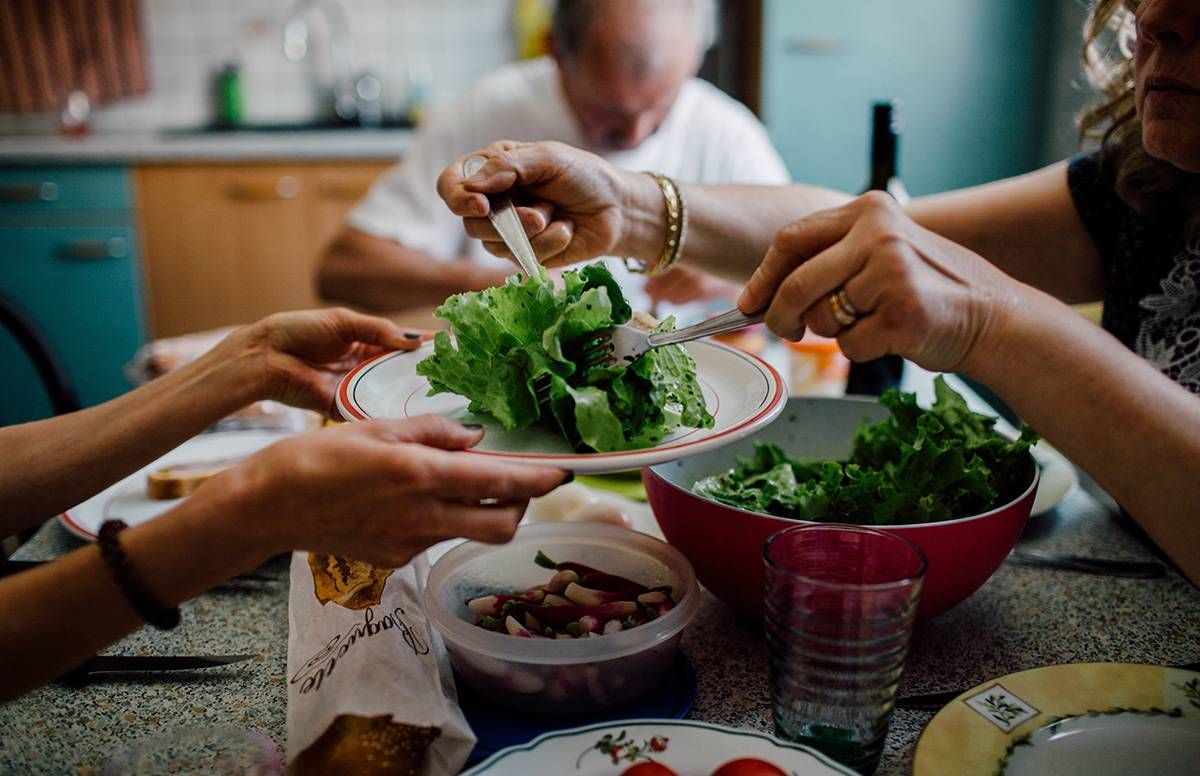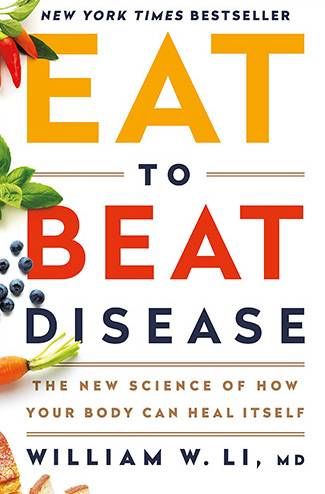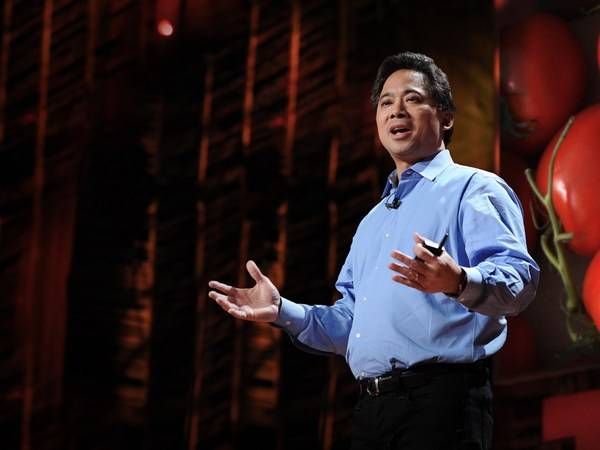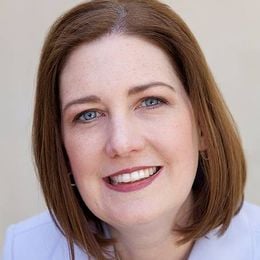Food as Medicine: How What We Eat Can Fight Disease
A renowned doctor recommends adding, not restricting, foods to protect our bodies
Dr. William Li's book "Eat to Beat Disease" isn't a traditional rundown of foods to avoid and cut. It's instead a refreshing guide to the hundreds of healing foods that support the body's defense systems.

Li is an internationally-renowned internal medicine physician, scientist and president and founder of the Angiogenesis Foundation — a nonprofit championing fighting disease through angiogenesis (the process the body uses to grow new blood vessels).

With praise from doctors and celebrities alike, Li's book offers readers research-backed direction for preventing, treating and reversing disease using foods that might be surprising.
At the top of Li's list? Soy. Consuming more soy is associated with lower breast cancer risk and prostate cancer risk and reduced risk of breast cancer mortality. Also, dark chocolate — its properties can double the stem cells in a person's circulation. And kiwifruit, which boosts the growth of a body's "good" bacteria.
Li is also an active participant in COVID-19 research, having co-authored a study about the virus published in the New England Journal of Medicine in July.
Next Avenue spoke with him recently about promoting the idea of food as medicine its ties to the COVID-19 virus:
Next Avenue: Why did you write your book "Eat to Beat Disease: The New Science of How Your Body Can Heal Itself?"
Dr. William Li: I've spent more than twenty-five years looking for common denominators that can actually be the Achilles heel of diseases and figuring out how we can develop biotech treatments to be able to use as breakthroughs for the disease. And for over twenty-five years, I've been involved with driving the successful development of more than thirty-four FDA-approved treatments, drugs and medical devices for cancer and vision loss, blindness and diabetes.
"What we eat defends us, which might help us set up a front line of defense against infection of the coronavirus."
I was taking care of some of my patients with really bad chronic diseases like obesity, cardiovascular disease and diabetes. They would always ask me — after I gave them a diagnosis and a referral to a specialist — what they could do for themselves. They would say, 'Doc, what should I eat?'
I realized that I had never been educated about that when I was in medical school. Physicians are taught rigorously to give lots of information about diagnosis and treatment. When it comes to something as simple as food, we are often without a knowledgeable answer. So I felt that was really wrong. I committed myself to really trying to figure out what is the right answer for them.
Because I have the background in drug development (biotechnology), I realized that we could actually begin looking at our food with the same purpose and the same rigor — the same type of scientific level of thinking as we do for medicine.
And that's my unique approach of food as medicine — to really have a no-holds-barred approach to looking at how foods can help our body. Foods that can help disease have immediacy, and it's something that people can use right away. So I felt that had to get out to the public.
What is your main advice regarding food as medicine when it comes to disease?
When I think about food and health and disease fighting, it's more than just about the food. It's about how your body responds. One of the first questions I asked when I got into food as medicine was to ask a really fundamental question, which was: 'What's the definition of health?' Most people would say health is the absence of disease. [And that] if you're healthy, you're not sick.
I realized that in fact, health is not the absence of disease, but it's the result of our body's hardwired health defense systems we're all born with that are firing on all cylinders — from the time that we come out of our mom's womb until our very last breath.
So we need to activate these health defenses. And so when I think about food as medicine, it's not about simply, 'Oh, eat more greens, eat more plant-based foods, or eat kale or have some fish.' It's really approaching: What can we eat that can help our bodies' defenses protect ourselves against disease and raise the bar inside our bodies to the point where we are able to resist the disease or overcome the disease? That's how I think about food as medicine.

What is your research on COVID-19 revealing?
Nobody ever intended to study COVID-19, but in the spring of 2020, the world was blindsided. And so I felt like I had to dive in to contribute something.
We found that this respiratory virus actually is diabolical and infects our blood vessels, and my work is in blood vessels. We found the following things: The coronavirus we breathe in, it gets into our lungs, affecting our blood vessels. And it can actually travel all throughout our body, affecting our blood vessels. By damaging our blood vessels, it can damage every organ in our body; from our brain to our heart or kidney to our liver. One of the important things to recognize is that our blood vessels are our lifelines. We have to be able to protect them.
We have to be really careful after people have recovered from COVID — the so-called long-haul syndrome, [where] COVID survivors have these bewildering, disabling symptoms of shortness of breath, heart racing, brain fog, extreme weakness, change in taste, even vision problems. Now people were even talking about their teeth falling out as these long-term problems with COVID. We believe that the injury to blood vessels — vascular damage — is playing a role.
From the very beginning, we noticed that there were some people who were not getting as sick, or not getting sick, from COVID, and there were correlations to their diet. The story was that what we eat defends us, which might help us set up a front line of defense against infection of the coronavirus. So this is something that I'm working on now: What can we eat to shore up our front lines of defense through our new system, to our gut microbiome, to be able to prevent infections?
Can we heal our blood vessels? Can we regenerate the damage? The answer I believe is yes. I'm working on how can we actually use what's in our refrigerator, what's in our pantry, what's in the farmer's market or grocery store to be able to help protect, repair and regenerate our blood vessels.
Vaccines are going to be game changing, but it will take time, and they really just prevent you from getting sick right now. They may not prevent the infection. We don't know that yet.
There's an opportunity for every human on the planet to make informed choices for foods that can actually activate and boost their own health defenses to provide the shield from this outside invader, the coronavirus, while shoring up and elevating their health inside.


